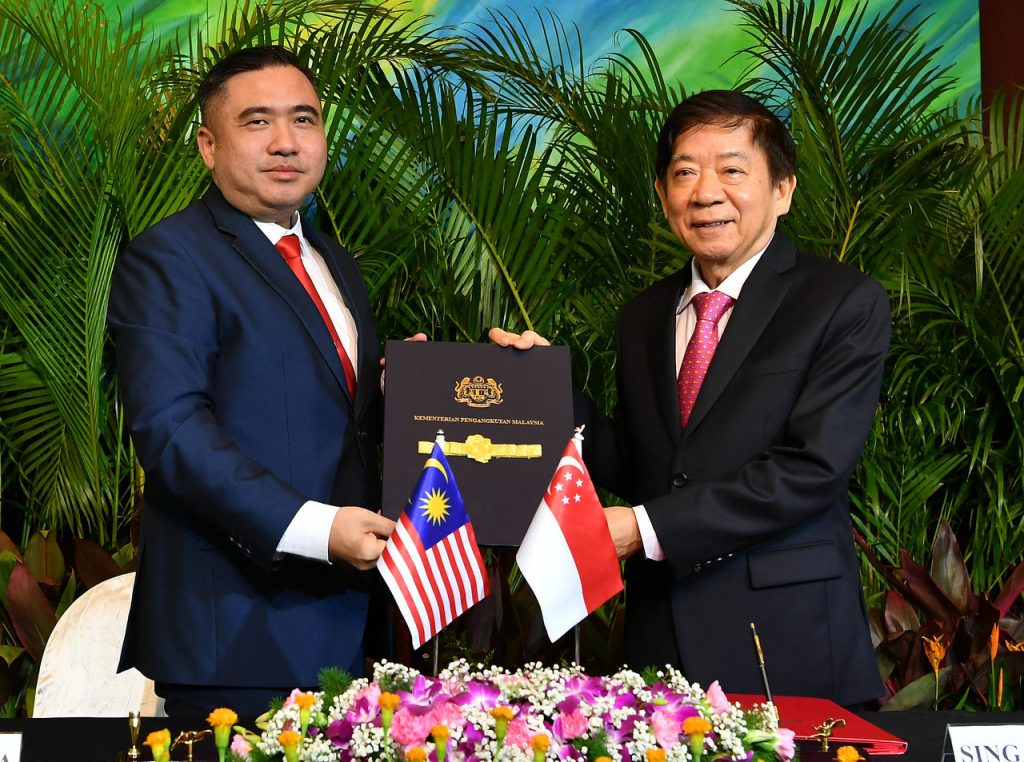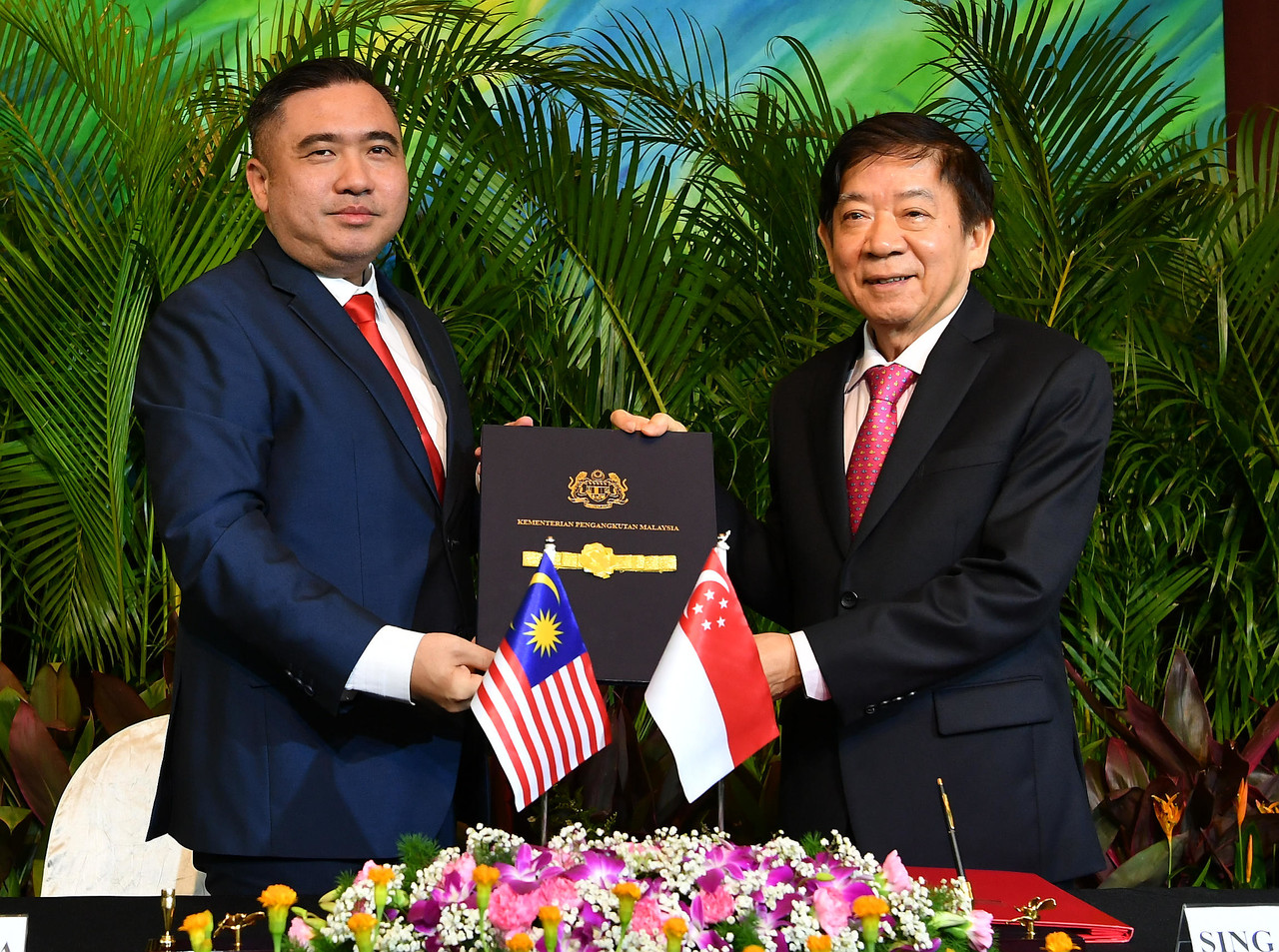
Photo courtesy of BERNAMA
SINGAPORE, May 21 (NNN-BERNAMA) — Malaysia and Singapore today officially signed the supplemental agreement (SA) for suspension of the Rapid Transit System (RTS) Link Project until September 30 this year.
Transport Minister Anthony Loke said Malaysia would reimburse Singapore about RM2 million by July 31, 2019, as abortive costs incurred as a result of the six-month suspension.
Loke and his Singapore counterpart Khaw Boon Wan sealed the agreement to formalise the suspension at the Transport Ministry here.
A bilateral agreement on the RTS Link was signed in January last year during the previous Barisan Nasional administration.
According to Loke, under the original agreement, the one-way fare was set at RM15 and would burden some Malaysians who travel daily to Singapore for work.
The project was initially scheduled for construction this year and expected to be completed by December 2024.
It was aimed at addressing congestion in the daily commute between the two countries.
The RTS Link project would cover 4km of rail linking Bukit Chagar (Johor Baru) and Woodlands ( Singapore), with the capacity to ferry 10,000 passengers per hour.
Meanwhile, Khaw said Malaysia would have to pay more than S$66 million (RM200 million) should it choose to terminate the project.
Both Ministers later visited the RTS Link site at Woodlands North.
Asked on how much reduction in cost is Malaysia looking at, Loke declined to put any figures as discussions between the two countries are still ongoing.
“We are looking into getting the private sectors to be involved in this project as well. So this is very much a commercial decision.
“The most important thing is if we are able to reduce the infrastructure cost that will benefit passengers and the public by and large as it will lower down the fare,” said Loke.
On whether the government has identified the private sectors, Loke said: “not yet.”
Loke also expressed his appreciation of Singapore’s support and understanding on the challenges faced by Malaysia in implementing the RTS Link project.
According to him, throughout a year he has met his counterpart six times as they discussed ways on resolving bilateral issues including the RTS.
“We recognize the urgent need to alleviate the traffic congestion at the Johor Bahru-Singapore Causeway which facilitates about 300,000 crossings daily affecting approximately 250,000 Malaysians working in Singapore,” he said.
Loke noted that the supplemental agreement would allow Malaysia some time to explore other affordable and sustainable solutions to address traffic congestion at the border.
“These include new initiatives such as improvements to the physical infrastructure at the border, review of inter-boundary policies and regulations and enhancing the quality of cross-border services,” he said.
In a joint statement, both ministers recognised the urgent need to alleviate traffic congestion at the Johor Bahru-Singapore Causeway.
Both countries will continue to discuss other affordable and sustainable solutions to address traffic congestion at the border.
“We will also explore further initiatives, including the use of new technology for enhanced security and checkpoint efficiency,” it said.
The ministers also noted the importance for both countries to establish cost-effective, efficient and sustainable transport interconnectivity, as it will foster greater people-to-people ties and generate shared economic and social benefits.
— NNN-BERNAMA






